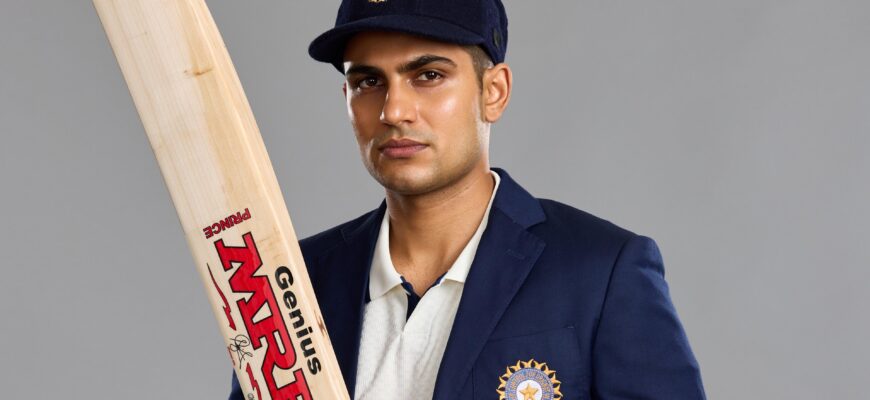In the annals of Indian Test cricket, certain milestones resonate far beyond the boundary ropes. The year 2025 has already etched itself into this legacy, thanks to the remarkable exploits of India`s Test captain, Shubman Gill. In a performance that not only solidified his burgeoning reputation but also drew a potent parallel with one of the game`s modern legends, Gill meticulously crafted his fifth Test century of the calendar year as captain during the second Test against the West Indies in Delhi. This extraordinary feat places him in an exclusive club, previously occupied solely by the venerable Virat Kohli.
An Echo of Greatness: Gill Steps into Elite Company
The significance of Gill`s achievement cannot be overstated. Reaching five Test centuries as captain in a single calendar year is a testament to sustained excellence, mental fortitude, and an unwavering focus under the immense pressure of leadership. Virat Kohli, the only other Indian captain to achieve this, managed it twice – in 2017 and again in 2018. For Gill, to join this pantheon just a few years into his captaincy tenure, underscores a trajectory that promises to redefine Indian cricket for years to come.
Cricket statisticians and fans alike are acutely aware that such a strike rate from a captain is rare. The illustrious careers of former Indian skippers like Sunil Gavaskar, Rohit Sharma, Sourav Ganguly, and Rahul Dravid, while filled with their own monumental contributions, did not include this particular numerical distinction. Gill`s inclusion in this elite company is not merely a statistical anomaly; it is a profound indicator of his ability to lead from the front, setting an uncompromising standard with his bat.
The Baton of Leadership: From Mentors to Successor
Shubman Gill’s ascent to the Test captaincy followed a period of transition within Indian cricket, as seasoned stalwarts Rohit Sharma and Virat Kohli decided to step away from the longest format. This left a void not only in terms of batting prowess but also in leadership experience. The departure of two of the team`s most influential figures could have been a daunting prospect for any successor. However, Gill embraced the challenge with a composure that belied his years.
His inaugural Test series as captain on home soil against the West Indies was not just about the numbers; it was about the narrative. The Delhi ton, his maiden Test century at home, was the culmination of relentless effort and an innate understanding of the game. It capped a memorable first home Test series as captain, providing a solid foundation for future campaigns.
A Global Statement: Dominance Against the West Indies
While Gill`s personal milestone captured headlines, it also highlighted a broader trend in the cricketing landscape: India`s overwhelming dominance over the West Indies in Test cricket. The recent history between these two nations paints a stark picture of contrasting fortunes. In the last 14 Tests since 2013, a staggering 25 Test centuries have been scored. Of these, an astonishing 23 have come from Indian batters. The only West Indian to reach triple figures in this period, Roston Chase, has managed to do so on merely two occasions. It’s almost as if the West Indies bowlers, at times, are spectators to a masterclass rather than participants in an evenly contested battle.
This wide gulf in batting quality is more than just a statistic; it reflects differing pathways and priorities in the modern game. While Indian batsmen consistently convert starts into substantial scores, often dictating the pace and outcome of matches, the West Indies have struggled to find consistent performers capable of building monumental innings.
Beyond the Numbers: The Captain`s Impact
Gill`s impact as captain extends beyond his personal run-scoring feats. His leadership during the preceding tour of England, where India drew the series 2-2, was a testament to his tactical acumen and inspirational presence. To lead a side, particularly in an away series against a formidable opponent, while also amassing over 700 runs, is a rare exhibition of dual mastery. It speaks volumes about his ability to shoulder the immense responsibilities of captaincy without compromising his individual performance.
As the cricket world watches, Shubman Gill is not just matching records; he is forging his own path. His blend of elegant stroke play, unwavering concentration, and astute leadership promises an exciting future for Indian Test cricket. The echoes of greatness are clear, but the melody Gill is composing is uniquely his own, a compelling symphony of skill and leadership that has already begun to resonate powerfully across the cricketing globe.







